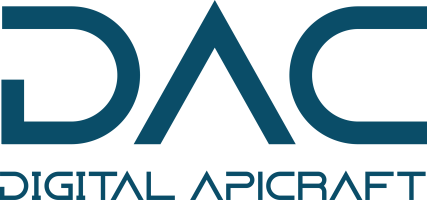Streamlining Development: The Case for Consolidating APIs in One Marketplace
In our tech-driven world, businesses are aiming for efficient workflows and top-notch solutions by embracing the evolution of Application Programming Interfaces (APIs) – the magical connectors facilitating seamless communication between software applications.
In the early days, APIs were often developed by individual companies or organizations as standalone tools to serve their specific needs. However, with increasing demand and technological advancements, the development of API was significantly increased. But there was a flip side. Developers found themselves facing a new challenge: managing multiple APIs from various providers simultaneously. This not only created complexity but also hindered progress due to compatibility issues and time-consuming integration tasks.
Enter API marketplaces – innovative API management platforms that revolutionized how developers access and utilize APIs in their projects. These dynamic platforms offer a centralized hub where developers can discover, evaluate, integrate, and manage multiple APIs from diverse providers all in one place.
In this blog post, let’s delve into the benefits of consolidating APIs within an API marketplace environment while learning how to shortlist the best API management platform that suits your business needs.
Understanding the Challenges of API Landscape
In today’s digital world, we have a vast array of APIs offered by different platforms and providers, which fulfill many purposes like payment management, location tracking, social media interactions, etc. While this variety might seem beneficial, it also presents challenges for developers, businesses, and organizations, which are:
- Fragmentation: APIs are scattered across multiple platforms, making it challenging for developers to locate, integrate, and manage multiple APIs effectively. This can lead to a fragmented development process leading to isolated API development with a holistic view of the overall API landscape and lack of coordination.
- Complexity: Working with numerous APIs often means dealing with different programming languages, authentication methods, and documentation styles.
- Maintenance Burden: With various APIs evolving and changing over time, developers face challenges to continuously monitor and update these integrations to ensure compatibility and functionality.
- Security Concerns: Integrating multiple APIs can expose vulnerabilities and security risks. Each API may have its own security protocols, complicating overall security management. Handling sensitive data without a standardized approach may lead to potential data privacy breaches.
- Increased Costs: Managing and integrating multiple APIs can lead to a significant financial burden, as subscription fees, licensing expenses, and integration costs accumulate. The complexity of vendor management further compounds these challenges, requiring negotiations for individual contracts, terms, and pricing structures when collaborating with multiple API vendors.
The Benefits of Consolidating APIs in One APIMarketplace
To address the above challenges, developers sought ways to streamline their workflows by consolidating disparate APIs into a single platform or marketplace. This approach enables them to access multiple APIs through a unified interface, simplifying tasks like authentication, documentation retrieval, usage tracking, and billing. Within a secure centralized hub, developers can explore new APIs tailored to their project needs and test integrations before committing resources fully. Here’s how it’s achieved:
- Simplifies API management: Developers no longer need to juggle multiple APIs from various providers, reducing complexity and time consumption.
- Centralized access: All needed APIs are available in one place, eliminating the need to navigate different platforms and documentation, and boosting API adoption.
- Centralized access: All needed APIs are available in one place, eliminating the need to navigate different platforms and documentation, and boosting API adoption.
- Enhanced control: Developers gain a clear overview of available APIs, gaining better control over their development process, while also enabling easy comparison of features, pricing, and support options.
- Informed decisions: Developers can make well-informed choices about which APIs best suit their project requirements.
- Informed decisions: Developers can make well-informed choices about which APIs best suit their project requirements.
- Improved user experience: It creates cohesive and seamless interactions within applications, saving time and enhancing the user experience.
- Enhanced security: A single marketplace ensures consistent security measures across integrated services.
- Reliable support: Consolidated marketplaces often provide reliable customer support channels for issue resolution.
- Collaboration opportunities: Developers can share insights and experiences, enhancing productivity and finding innovative solutions within the marketplace community.
Role of API Gateway Integration
API gateway integration is another critical aspect of streamlining API management. Serving as the primary entry point, it handles both incoming and outgoing API requests, ensuring streamlined processing. It can distribute incoming API requests across multiple backend servers for load balancing to optimize performance and maintain reliability.
The API gateway’s security functionalities like authentication, authorization, etc., protect APIs from unauthorized access and malicious attacks. A well-integrated API gateway boosts security, scalability, and overall marketplace efficiency.
Which is the Best API Management Platform?
When considering API management service options, finding the best is paramount. You require a scalable, secure, and cost-effective solution that provides comprehensive support and seamless integration. A standout option in this realm is DigitalAPICraft’s One APIMarketplace- which only provides gateway integration but also streamlines development processes, enhancing overall efficiency. This platform is engineered to boost API adoption, minimizing API sprawl and complexities. By operationalizing APIs, it makes them easily discoverable, consumable, and collaborative.


